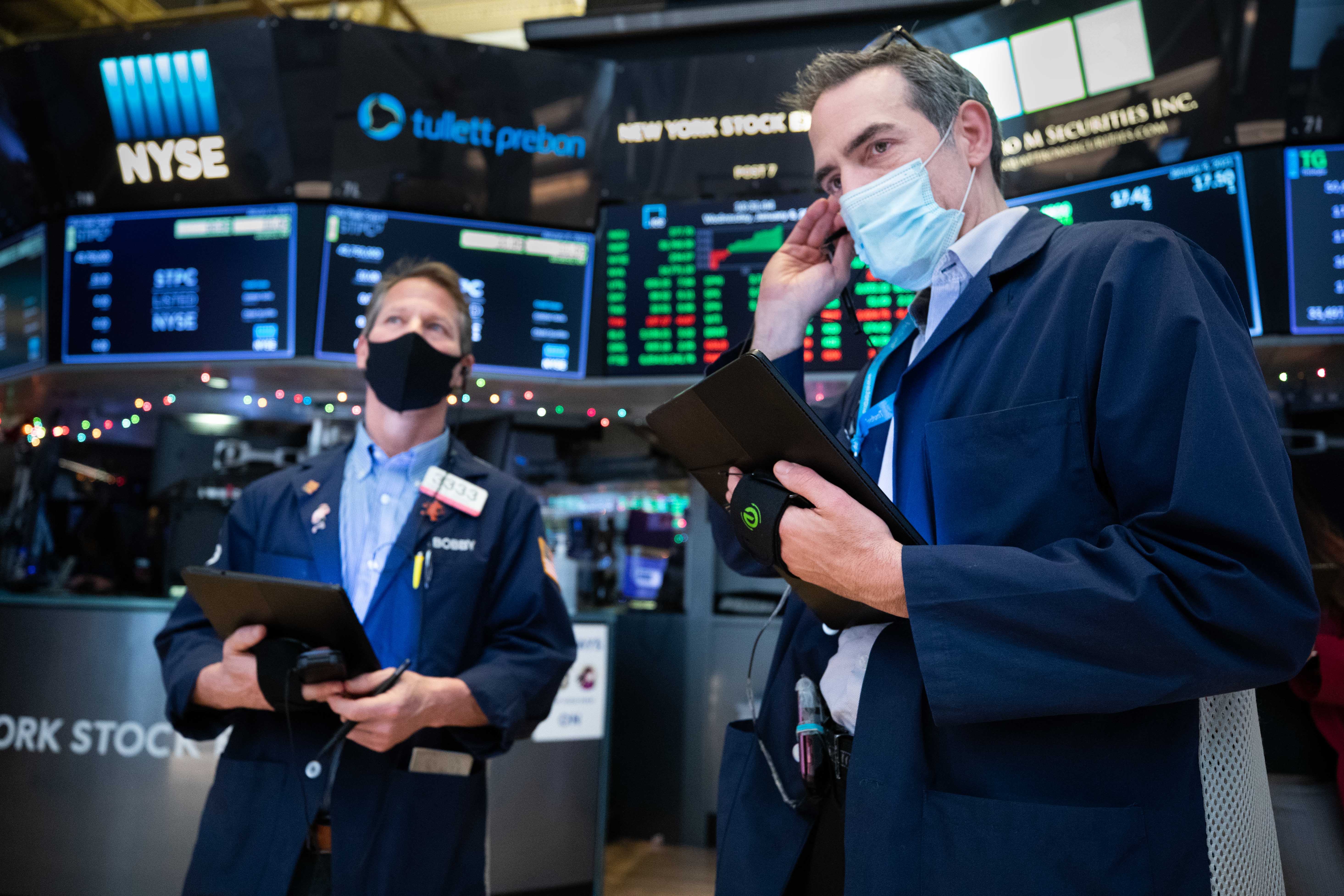Dow gives up earlier gain, falls more than 200 points despite better-than-feared inflation report

U.S. stock indexes gave up earlier gains Tuesday, falling back into their September doldrums despite a better-than-feared inflation reading.
The Dow Jones Industrial Average lost about 215 points, or 0.6%. The S&P 500 fell 0.3% and the Nasdaq Composite traded 0.2% lower.
Stocks linked to the economic recovery led the turn lower 30 minutes after the open. Bank of America led financial shares lower. General Electric took industrial shares into the red. Investors crowded into some of their favorite tech bastions with Microsoft and Amazon higher.
The August consumer price index, while still showing a significant jump in inflation, came in less than feared. August CPI jumped 0.3% month-to-month, or 5.3% from a year earlier, below the 0.4% increase and 5.4% annual gain expected respectively by economists polled by Dow Jones.
The less volatile core reading excluding food and energy costs showed just a slight gain, up 0.1% and below the 0.3% consensus increase expected by economists.
“What we need to see to be fundamentally markets supportive is a continued easing in the inflation piece without deterioration in the economic outlook,” said Liz Ann Sonders, Charles Schwab chief investment strategist.
Stocks have been under pressure since August’s jobs report, released by the Labor Department on Sept. 3, missed expectations.
“The next couple of weeks, economic data points become even more important to see whether it confirms the the weakness that we saw on the August jobs report or starts to suggest that maybe we’re seeing an improvement,” Sonders said.
The Federal Reserve is monitoring key economic indicators like inflation readings as it decides when to taper its pandemic-era easy monetary policy. The Fed begins a two-day policy meeting on September 21.
“I believe the Fed will talk about tapering in September and not announce it until the November meeting and then put it in place before the end of the year,” said Art Hogan, chief market strategist at National Securities.
The major averages are all down at least 1% for September, and RBC doesn’t see the S&P 500 surging into the end of the year. The firm raised its year-end target for the benchmark index to 4,500 on Monday, up from a prior target of 4,325. The new target is less than 1% above where the index closed on Monday. The firm also introduced a 2022 year-end target of 4,900.
“We continue to think the S&P 500 will experience a bout of volatility/meaningful pullback before the year is up, a call that we’ve been making for the past several months due to elevated equity market sentiment and positioning,” the firm wrote in a note to clients.
“While we take the reasons for a pullback seriously, we also see economic recession risks as low, reducing the likelihood of a full growth scare, and intend to treat it as a buying opportunity,” RBC added.
In Washington, House Democrats proposed new tax hikes to pay for the $3.5 trillion spending package. A summary from the Ways and Means Committee showed that the plan calls for top corporate and individual tax rates of 26.5% and 39.6%, respectively.
—CNBC’s Patti Domm contributed reporting.
Become a smarter investor with CNBC Pro.
Get stock picks, analyst calls, exclusive interviews and access to CNBC TV.
Sign up to start a free trial today




